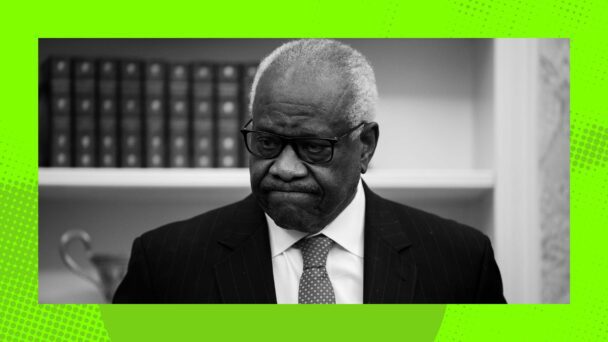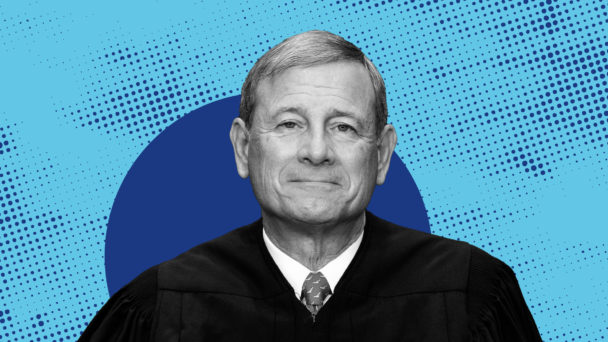On Tuesday morning, the Supreme Court heard oral argument in Chiles v. Salazar, the latest gambit by right-wing activists at the Alliance Defending Freedom to repurpose the First Amendment as a weapon against LGBTQ people. Two years ago, the ADF successfully argued that Christian web designers have a First Amendment right to deny services to same-sex couples, if such a couple were to ask them to design a wedding website. Last year, the ADF successfully argued that parents have a First Amendment right to effectively purge public schools of books with LGBTQ characters. Now, in Chiles, the ADF is arguing that state-licensed mental health practitioners have a First Amendment right to try to make queer kids stop being queer.
Colorado is one of dozens of jurisdictions to prohibit licensed psychologists, counselors, and so on from subjecting minors to “conversion therapy,” which refers to interventions that attempt to change someone’s sexual orientation or gender identity. Medical experts overwhelmingly reject conversion therapy as a dangerous and discredited pseudoscience, and the United Nations has called for a global ban on the practice. Survivors of conversion therapy filed an amicus brief in this case explaining that conversion therapy not only failed to change their sexual orientation or gender identity, but also treated them as if there was something “wrong” with them to be “fixed”; taught them “to feel shame, or even hatred, about who they were”; and pushed them to depression and self-harm.
Nevertheless, with help from the ADF, a Colorado-based counselor named Kaley Chiles argues that the state’s ban on conversion therapy amounts to a viewpoint-based restriction on her speech. “The First Amendment doesn’t permit Colorado’s censorship,” said Chiles’s lawyer, James Campbell, at oral argument.
Despite this First Amendment framing, the ADF’s concern here is not really free speech, in any meaningful sense: Colorado’s law regulates mental health treatment, and the fact that some mental health treatments are carried out with words does not make them less subject to regulation. (As Justice Elena Kagan pointed out, if doctors were telling patients they can lower their cholesterol “by going out and eating dessert every meal,” the First Amendment would not prevent lawmakers from taking action to protect people from this quackery.) The important question in Chiles v. Salazar is whether states have the power to protect LGBTQ kids from harm inflicted by purported health professionals. And at oral argument, the Republicans on the Supreme Court seemed eager to answer: No, they do not.
This would be troubling in and of itself, but it is doubly so because of the Court’s recent decision in United States v. Skrmetti. In that case, the central question was: Do states have the power to inflict harm on LGBTQ kids? And there, the Republicans on the Supreme Court answered: Yes, they do.
Skrmetti, which the Court decided in June, upheld a Tennessee law that prohibits medical providers from administering hormone therapy to minors if the purpose of the treatment is to help the patient “identify with, or live as, a purported identity inconsistent with the minor’s sex,” or to alleviate “purported discomfort or distress from a discordance between the minor’s sex and asserted identity.” Basically, if a cis boy wants hormones to feel more masculine, he can do so, but if a trans boy wants hormones to feel more masculine, he cannot.
In his majority opinion in Skrmetti, Chief Justice John Roberts emphasized that states have “wide discretion to pass legislation in areas where there is medical and scientific uncertainty.” But at oral argument in Chiles, the Court did not want to extend Colorado this same courtesy. After Colorado Solicitor General Shannon Stevenson spoke about counselors’ duty to treat patients in accordance with professional standards, Justice Samuel Alito pressed her on whether those standards could really be trusted.
“The medical consensus is usually very reasonable and it’s very important,” Alito said. “But have there been times when the medical consensus has been politicized—has been taken over by ideology?” He then invoked other dark moments in the histories of medicine and the Supreme Court, asking whether “many medical professionals” once thought that “certain people should not be permitted to procreate because they had low IQs” or “every child born with Down syndrome should be immediately put in an institution.” Four months ago, in Skrmetti, the Court used purported medical uncertainty to give Tennessee more flexibility to discriminate. Today, Alito used purported medical uncertainty to give Colorado less flexibility to protect.
Justice Amy Coney Barrett also questioned the evidence of the dangers of conversion therapy, and imagined a dispute in the medical community instead. “Let’s say that you have some medical experts that think gender-affirming care is dangerous to children, and some that say that this kind of conversion talk therapy is dangerous,” Barrett mused. “Can a state pick a side?” Barrett then connected the dots a little more explicitly. “It’s not that the medical community says, ‘We just don’t know,’” she said. “It’s that there are competing strands, and some states like, say, Tennessee, which was the state at issue in Skrmetti, pick one side. Colorado picks another side.”
Again, the medical community does know: The American Medical Association, the American Psychiatric Association, and other relevant experts have all condemned conversion therapy. But that doesn’t actually matter, because the Court is using an imaginary controversy to make conflicting inferences about states’ legislative authority.
At first glance, Skrmetti and Chiles seem logically inconsistent: Medical uncertainty confers authority here, yet restricts it there. There is, though, an internal consistency: For the Supreme Court, right-wing reactionaries should always win. The idea of medical debate is a tool that the justices can use to empower states when they see fit, and bind states when they do not.






